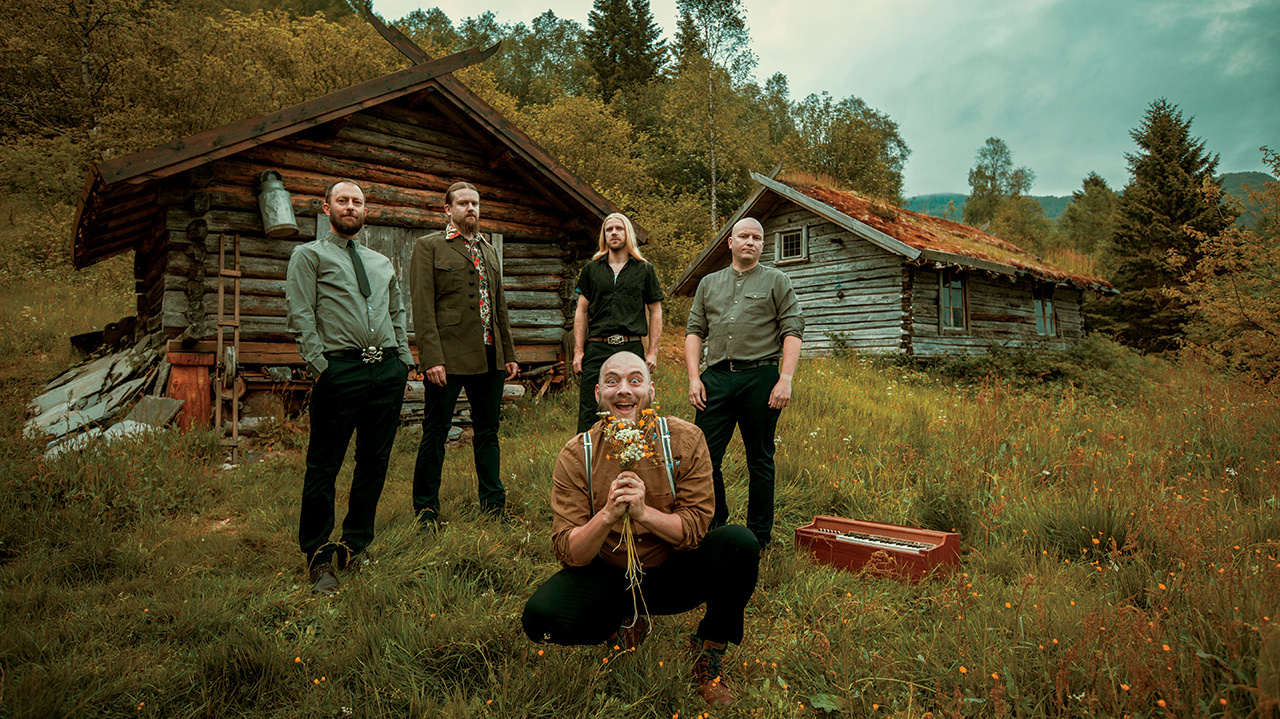Vulture Industries on the absurd, degenerate art and oblivion
Vulture Industries’ vivid theatre of the absurd has been beguiling audiences for more than a decade, but it’s a mirror held up to the tempestuous times we live in

Degenerate art’, or ‘Entartete Kunst’ in the tongue of its origin, was a term given by the Nazis to all works of art that did not promote their militant ideology of racial purity. They knew that propaganda was a powerful weapon, and it was wielded with ruthless efficiency by Hitler’s close confidante, Joseph Goebbels. He knew that if they could control the kind of messages people received, they could heavily influence their thoughts. Any art that encouraged people to think for themselves was derided, banned, and in the most extreme cases, burned.
It would serve us well not to forget lessons learned the hard way more than 70 years ago. Europe’s political spectrum has shifted to the right in recent years, with hateful rhetoric on the rise. You only need to think back to the front pages of the right-wing British media in the recent general election to know that dark forces haven’t forgotten the power of propaganda.
It’s a lesson not lost on Bjørnar E Nilsen and the rest of Vulture Industries, influenced heavily by the expressionist art movement so reviled by the Nazis. “If Goebbels was asked his opinion of Vulture Industries I’m pretty sure he’d call it degenerate art,” he states in his relaxed, Norwegian lilt. As the mouthpiece of the band for the past 14 years, he has used the emotive power of their beguiling avant-rock to address the woes of the modern world, and encourage people to look past the propaganda.
“What I want to do is to help people think and make up their own minds,” he affirms. “One of the main problems with the human condition is the tendency to lean towards absolute truths instead of seeing things from different perspectives. We live in an insecurity-riddled time; we have shitloads of information at our fingertips, but this overload makes for uncertainty and therefore makes people more susceptible to easy solutions.”
Heavy subject matter, but that doesn’t mean that we can’t let off a little steam. Their new album, Stranger Times, takes their carnivalesque concept to greater heights, with a collection of songs that leave a lasting impression. Its tightly-written epics of majestic, hidden depths are full of wry humour, as Bjørnar’s multi-faceted vocal approach is more akin to listening to a theatrical cavalcade of characters acting out a story than a singer in a rock band.
“When I record and perform I try as much as possible to convey a story,” he explains. “It’s not like telling a story from A to B, but conveying it through images and emotions. That really affects my vocal approach.”
Any who have witnessed the melodrama of their stage show can attest to its compelling nature. “This way of presenting the music feels really natural,” enthuses Bjørnar. “Metal is a very dramatic genre, and for me it seems like the logical choice to add this to the stage; like a natural continuation.”
Sign up below to get the latest from Metal Hammer, plus exclusive special offers, direct to your inbox!
Vulture Industries strive to present a unified vision. Their onstage costumes and personas, the portrayal of character and the emotional rollercoaster ride their music takes you on all combine to create theatrical tragedy. It’s the party to distract us all at the end of times, laughing, as they say on Stranger Times’ grimacing debut single, As The World Burns. These themes are tied together brilliantly by the vision of Romanian artist Costin Chioreanu, a fan of the band who has rendered their vision since 2013’s The Tower. It must have been a lightning bolt moment to discover someone who represented their vision so clearly.
“No,” laughs Bjørnar, “He was cheap! No, definitely – we met Costin some years ago at Dark Bombastic Evening festival in Transylvania. We were playing in an old Roman fortress. He had an exhibition there. I really loved his images – they were dark, but at the same time represented both sides of being human, and had this expressionist touch. He’s become a sixth bandmember for us; he really gets it, intuitively.”
The cover art for Stranger Times is a perfect encapsulation of the band’s unique perspective, the feel harking back to the Expressionist period of art that so inspires them while addressing a modern world teetering on the brink of oblivion.
“The rhinoceros trying to traverse a line on a unicycle while being struck over the head by demons with newspapers – it’s like this feeling that the world is constantly trying to balance on a tightrope – it somehow manages to keep afloat even though you can see that it’s probably going to hell!”
- Watch the world burn with Bergen's avant metallers Vulture Industries
- Vulture Industries: The Tower
- The TeamRock+ Singles Club
- TeamRock Radio app back on Apple’s app store
Vulture Industries’ dark sense of humour and theatrical approach to metal seems quintessentially Norwegian, tying the band, along with the likes of Arcturus and Virus, into a rich tradition of avant-garde music to originate from those lands, with its roots in black metal. As an employee of sister black metal and prog label Dark Essence and Karisma, Bjørnar is highly qualified to ponder why this might be the case.
“I’ve been asked about this before and usually say there’s something in the water,” he laughs. “When you look at the good black metal bands most of them have a very strong sense of individuality. This goes well together with the progressive approach. It’s two genres that found each other and became something beautiful, and evolved into something new, which is something both genres needed.”
Discussing the band’s evolution reveals a strange, cyclical process of creativity Bjørnar couldn’t have predicted 14 years ago. “When we started out we had more of an issue with finding a set path,” he reflects. “As the years passed we became more confident songwriters; those bonds have loosened. In the end we were left with what feels right to do within the framework of Vulture Industries. At this point it’s fairly easy for me to see if something works or not. Actually some of the riffs on Stranger Times are really old. They got abandoned during the writing of the first and second albums – they didn’t really fit in back then. I took them out again, and they fitted into the concept pretty seamlessly.”
One of the benefits of the ageing process is feeling more comfortable in one’s own skin. It’s benefitted the creative process of a band aware of humanity’s mistakes, the moral of their story perhaps being that we shouldn’t repeat them.
“There’s hope,” Bjørnar reassures. “There are lovely people and I think solutions can be found. Trying to fix it with bombs is a bit like trying to stop the bully at school by blowing up the school – that doesn’t make sense to me!”
Stranger Times is released on September 22 via Season Of Mist
